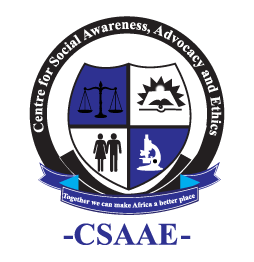Corruption remains a persistent issue in Nigeria, permeating various sectors and affecting the lives of its citizens. Recognizing the different forms of corruption is crucial in combating corruption. This article seeks to provide insights into the types of corruption prevalent in Nigeria and how individuals can identify and resist corrupt practices effectively.

The types of corruption in Nigeria include:
- Bribery and Kickbacks: Offering or accepting money, gifts, or favours to influence a decision or gain an unfair advantage is a common form of corruption in Nigeria. This practice undermines the integrity of institutions and breeds a culture of dishonesty.
- Embezzlement and Misappropriation of Funds: Public officials siphoning public funds for personal gain or diverting resources meant for public projects is a prevalent form of corruption in Nigeria. This deprives the country and its citizens of essential infrastructure and services.
- Nepotism and Cronyism: Favoring family members, friends, or associates in the allocation of opportunities or resources, rather than based on merit, is another form of corruption that hampers the country’s progress.
- Extortion: Demanding money or favors through threats or coercion is a form of corruption in Nigeria that exploits individuals or businesses for personal gain.
- Fraud: Engaging in deceitful practices to deceive individuals or organizations for financial gain is a significant challenge in Nigeria. This includes fraudulent activities such as identity theft, forgery, and financial scams.

The following are the various ways to identify and safely resist corruption:
- Stay Informed: Educate yourself on the various forms of corruption prevalent in Nigeria to recognize when you encounter corrupt practices.
- Question Dubious Practices: If you suspect any form of corruption, do not hesitate to question it. This is because transparency and accountability are essential tools in combating corruption and citizens should not be scared to hold their leaders accountable.
- Report Corruption: Utilize available channels to report corrupt activities. In Nigeria, whistleblowing policies protect individuals who report corruption from retaliation.
- Support Anti-Corruption Initiatives: Engage with organizations, such as the Civil Society Advocacy and Awareness on Ethics (CSAAE), that are dedicated to combating corruption in Nigeria.
Nigeria has enacted several Laws to combat corruption, including:
- Corrupt Practices and Other Related Offences Act 2000: This Act criminalizes corrupt practices and prescribes penalties for offenders, aiming to deter individuals from engaging in corrupt acts.
- Economic and Financial Crimes Commission (EFCC) Establishment Act 2004: The EFCC is tasked with investigating financial crimes, including corruption, and prosecuting individuals involved in corrupt practices.
- Code of Conduct Bureau and Tribunal Act: This act requires public officials to declare their assets and prohibits them from engaging in corrupt practices.
Individuals can play a proactive role in combating corruption by reporting suspicious activities. CSAAE provides a toll-free line, 0800 900 1000, where individuals can report corrupt practices confidently.
In conclusion, combating corruption in Nigeria requires a collective effort. By understanding the different types of corruption, staying vigilant, and reporting corrupt practices, individuals can contribute to fostering a culture of integrity and accountability in the country. It is essential to support anti-corruption initiatives and work towards a transparent and accountable society for the betterment of all Nigerians.


